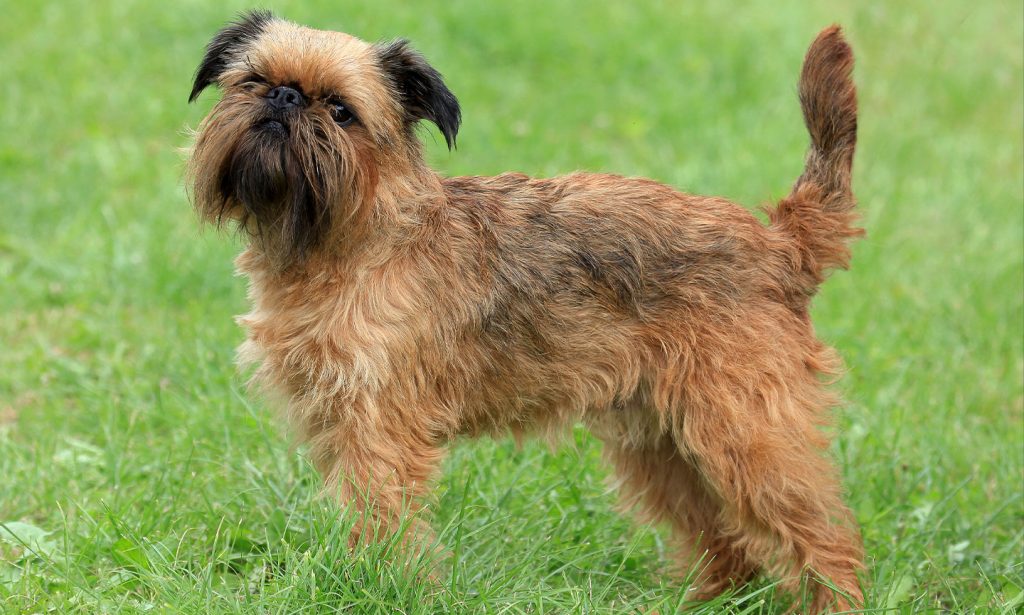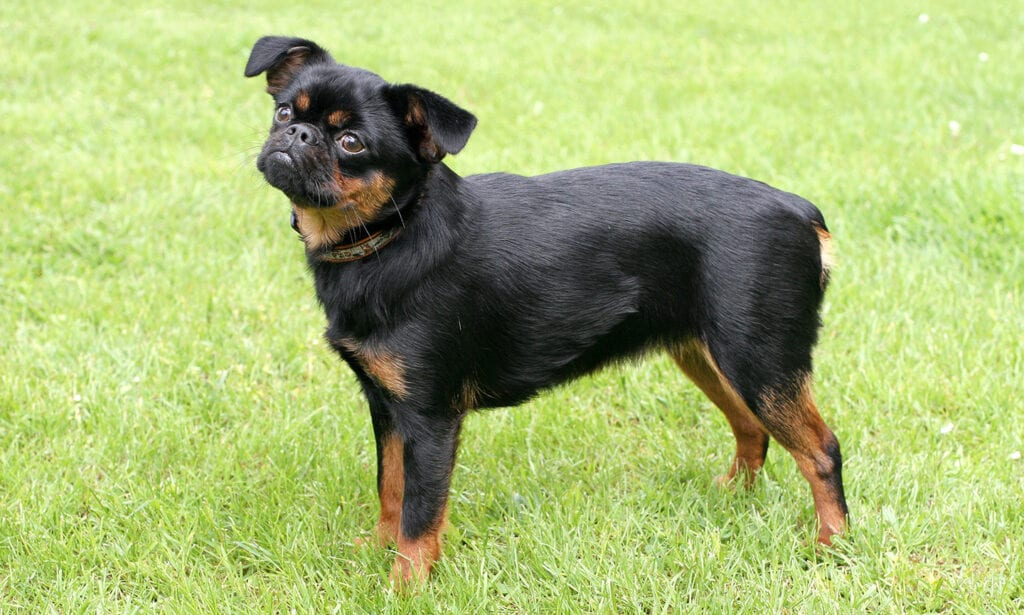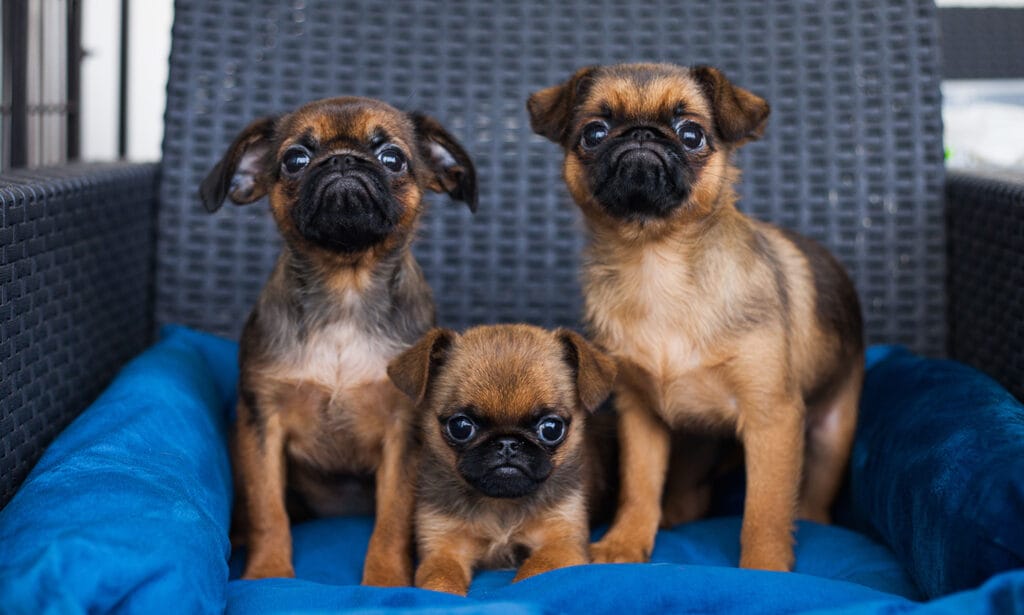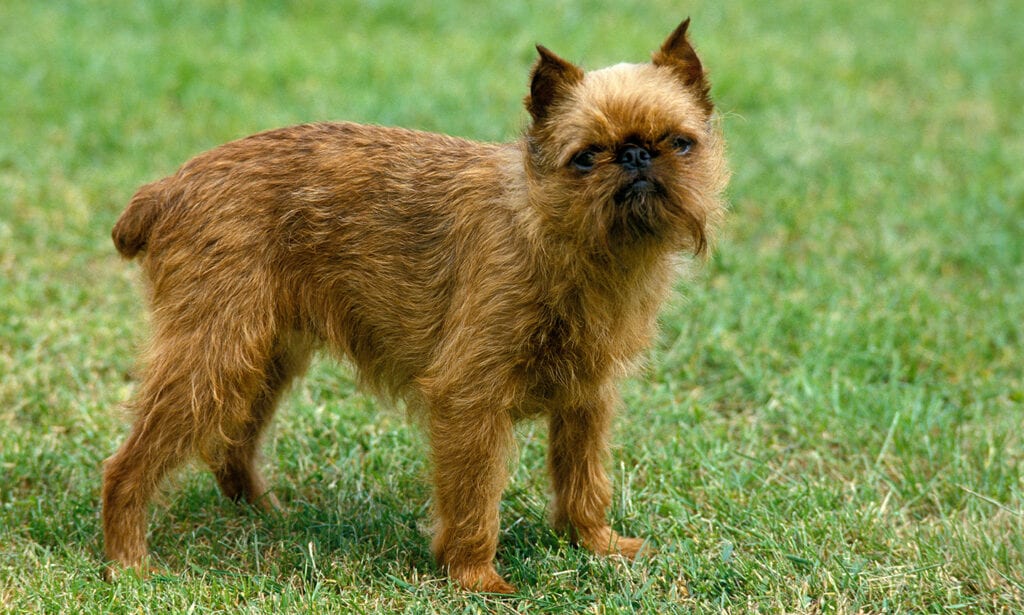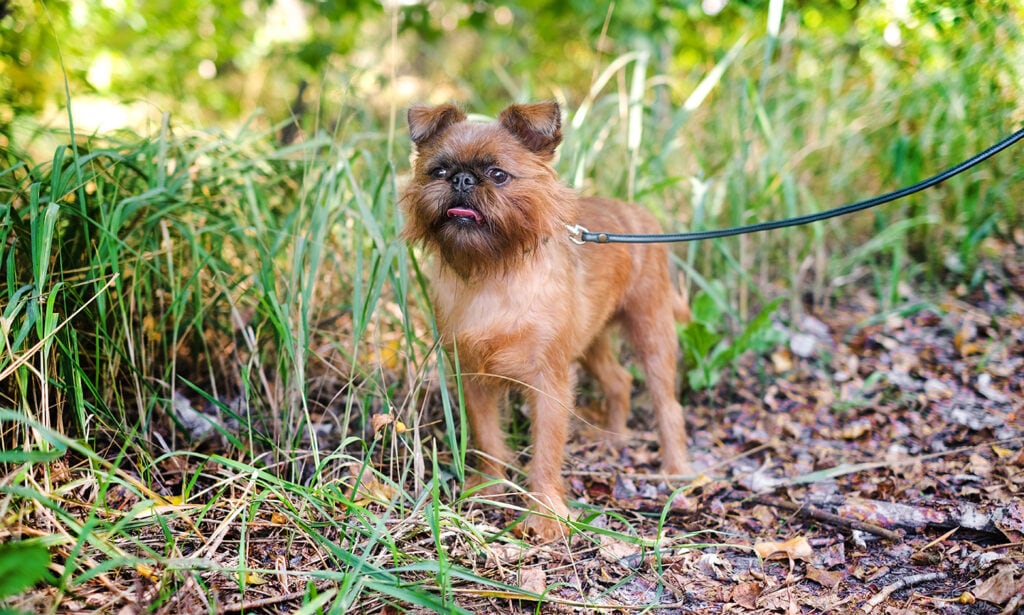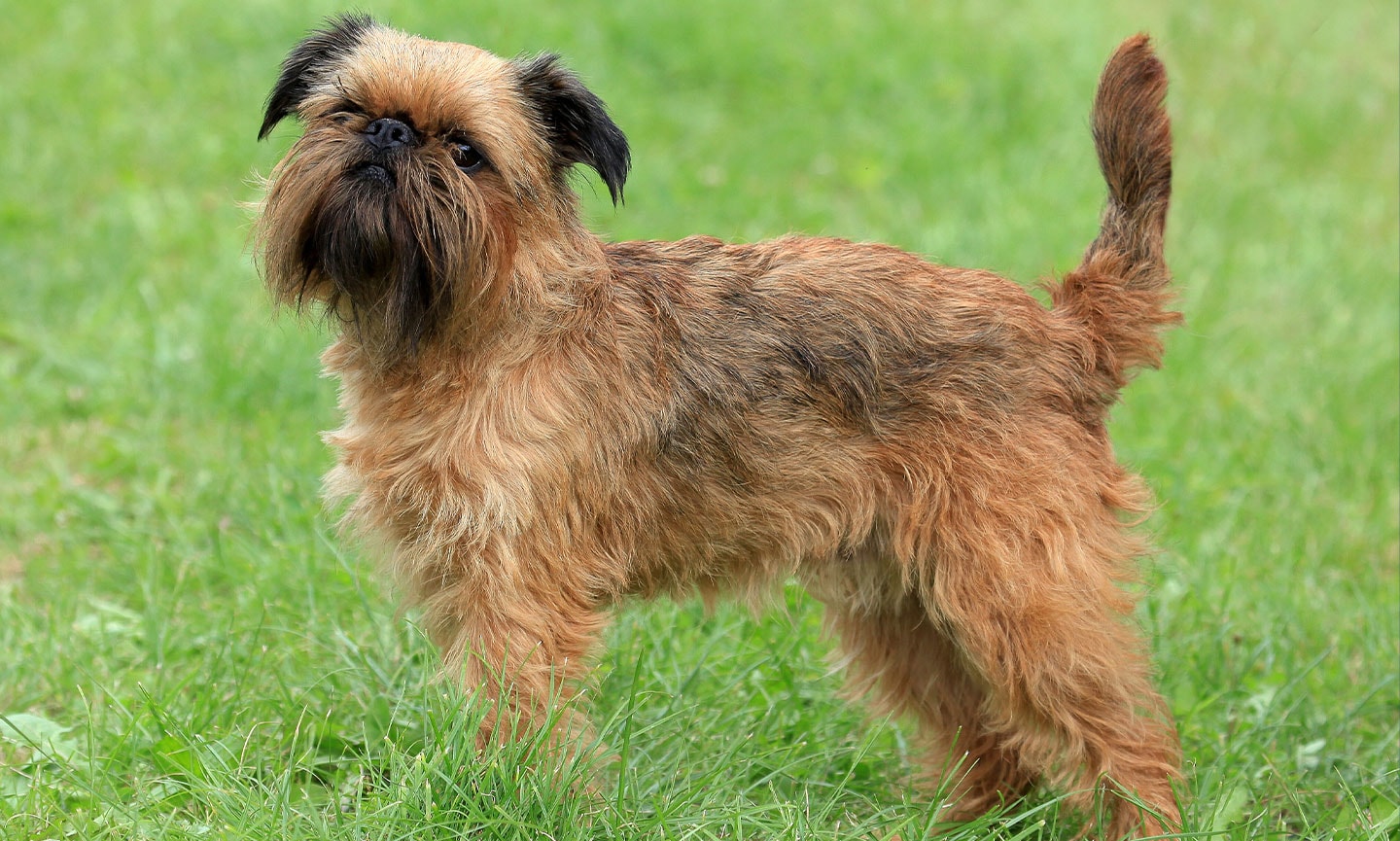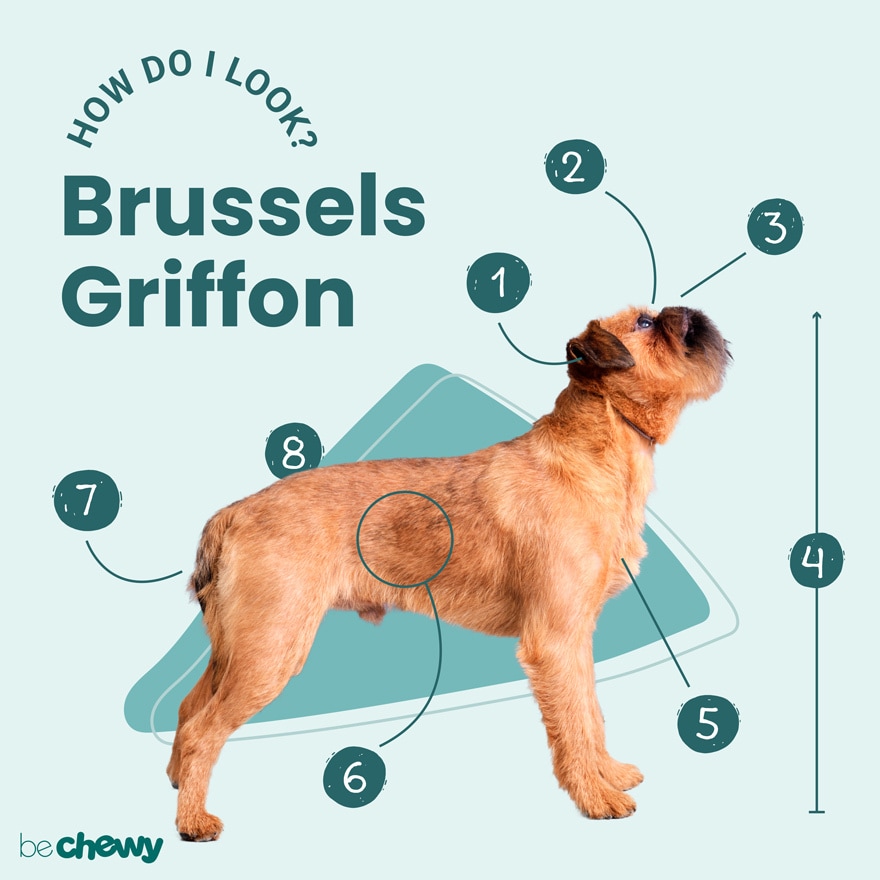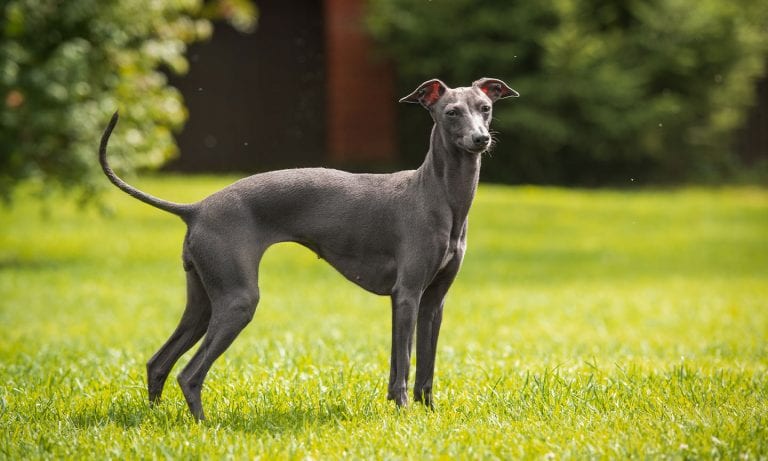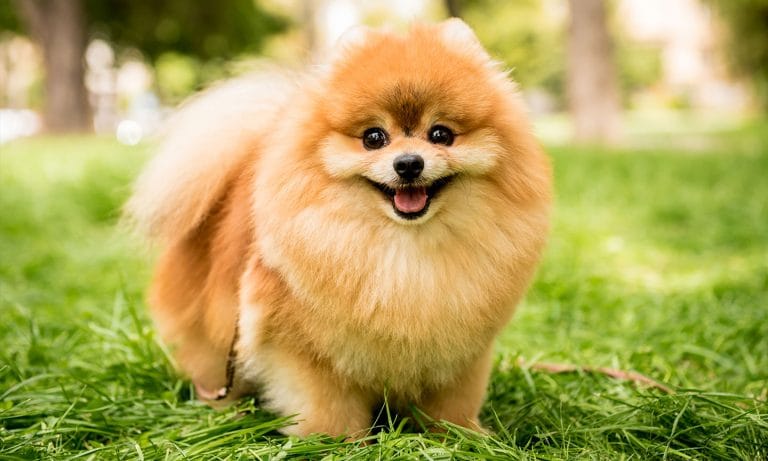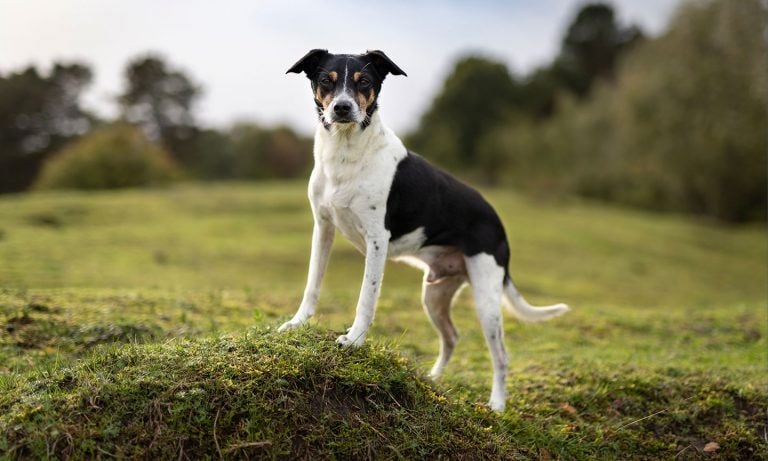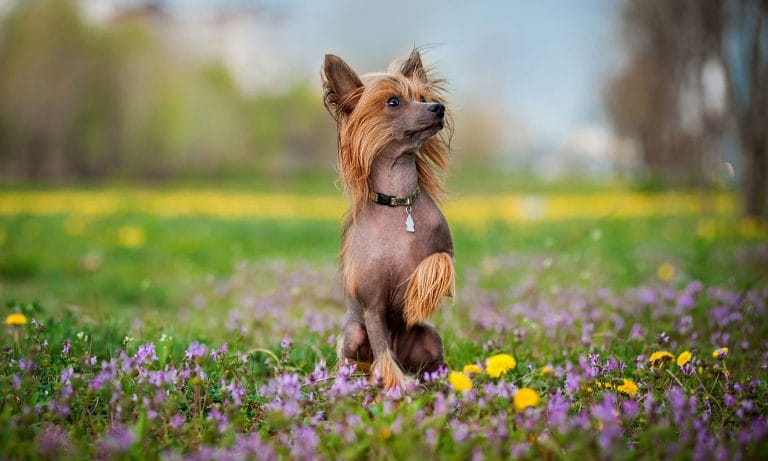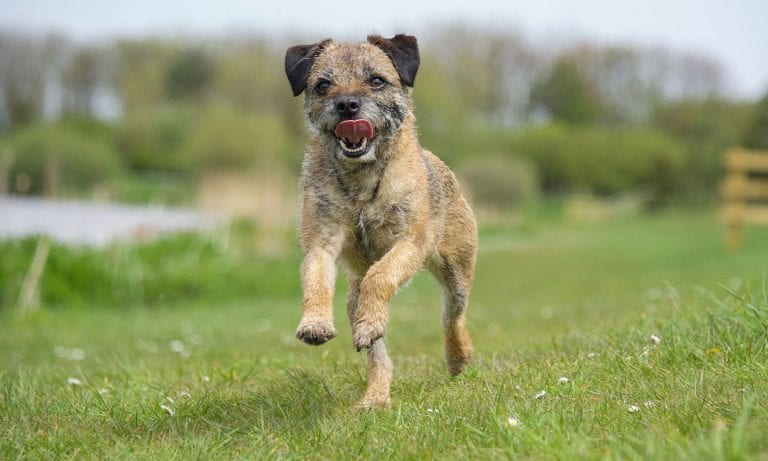Brussels Griffons (aka “Griffons”) are instantly recognizable with their smooshy faces and trademark beards. These spunky pups are small in size, but they’ve got a lively personality and love for their human that’s 10 times their size. As consummate “Velcro dogs,” their favorite spot is right next to you, whether working from home, out running errands or watching a late-night movie from the couch. One look into their soulful eyes, and you’ll be the “Velcro person” as you tote this pocket-sized pal everywhere you go.
Breed Snapshot
Temperament:
PlayfulLoyalIntelligentCoat Color:
RedBelgeBlack And TanBlack
Best For
The Brussels Griffon is a small, compact breed known for their distinctive smushed faces. Despite their small size, they have big, expressive personalities. Playful and charming, they form strong bonds with their families and are known to be “Velcro dogs.”
Brussels Griffon Temperament
Brussels Griffons have a friendly, personable temperament, and generally take well to meeting new humans, dogs and cats. As they were originally bred to keep rats and other vermin out of stables, Brussels Griffons may not look so fondly on pets that speak to their inner hunting instinct (we’re looking at you, hamsters and gerbils). They’re not known to be aggressive or biters, but they can be barkers if not trained properly.
The Brussels Griffon breed is active, confident and intelligent. They thrive in environments where they can be physically and mentally active, so if you’ve ever wanted to see a tiny dog crush an agility course, raising a Brussels Griffon is right up your alley.
These “Velcro dogs” want nothing more than to be with their special person. That said, they can be good family dogs if the children in the family understand that the Brussels Griffon, while part of the Toy group, isn’t actually a toy.
How to Care for a Brussels Griffon
Caring for a Brussels Griffons means ensuring they have ample time to get their energy out. This affectionate breed also needs ample amounts of attention. Their grooming and training needs are fairly moderate.
Brussels Griffon Health
Brussels Griffons have a life expectancy of 12 to 15 years. As playful and loyal as these pups are, they’re generally healthy but do have some health issues that pet parents need to be aware of.
- Breathing Issues: While part of the Brussels Griffon’s utter adorableness is their flattened face (brachycephalic), that same characteristic can equal breathing problems for the breed, especially in hot weather. Be sure to keep your pup indoors with the AC cranked during hot days and give them lots of fresh, cool water to drink.
- Joint Issues: Hip dysplasia is a health problem when the hip joint is malformed and can cause your pup to have lameness and pain. It’s also not uncommon for Griffons to have patellar luxation, or kneecap dislocation. Treatment for both includes weight management, physical therapy and surgery, depending on the severity.
- Eye Issues: While their wide, searching eyes are what so many people love about the Brussels Griffon, it is a fact that those eyes can also cause big problems for the small pups. Their eyes can be prone to progressive retinal atrophy (PRA), which eventually can lead to blindness. This breed is also prone to cataracts in older dogs. There is no treatment for PRA, but surgery may be possible with cataracts.
Brussels Griffon History
Originating in the early 1800s from Brussels, Belgium—where they are known as Griffon Bruxellois—the Brussels Griffon is the result of crossbreeding the Affenpinscher with several other breeds, including Pugs, King Charles Spaniels and English Toy Spaniels. (The coachmen and stablemen who had a hand in the breeding didn’t keep clear records).
These small dogs are tiny but mighty and originally bred as ratters, i.e., to keep rats and other small vermin out of stables. Around 1870, however, history notes they got a boost out of the stables and into the lap of luxury when Queen Henrietta Maria of Belgium couldn’t resist the smushed faces of the Brussels Griffon breed and made them a household name. That also paved the way for official recognition by the American Kennel Club (AKC), which registered the first Brussels Griffon in 1910. In 1982, the American Brussels Griffon Association was elected to AKC membership.
While their origin moved quickly up the ranks from stable to castle, today’s dogs are most known for their pouty faces and loving, longing eyes that people can’t seem to resist. And their intelligence and playfulness make them stars—literally! If this sweet pup’s face seems familiar, and you’re a fan of Jack Nicholson films, you may recognize the Brussels Griffon as the dog who stole the show in the movie “As Good As It Gets.”
So, where’s the best place to find Brussels Griffon puppies today? You can find a list of reputable breeders on the American Kennel Club website. What’s the average Brussels Griffon price? Depending on the breeder, expect to spend about $1,500 to $2,500 for a pup. But for that, you usually get a dog who’s been screened for health and temperament issues, and they might even come with pedigree papers. You can also reach out to Brussels Griffon rescue organizations to adopt one of these pups, keep an eye out for the breed at your local animal shelter, or search Chewy’s database for adoptable Brussels Griffons in your area..
FAQs
Do Brussels Griffons shed?
Whether or not Brussels Griffons shed depends on the type of coat the pup has. Those with rough coats do not shed, but Brussels Griffons with smooth coats do, though only about twice a year in the spring and fall.
How long do Brussels Griffons live?
Brussels Griffons have a life expectancy of 12 to 15 years.
How big do Brussels Griffons get?
Brussels Griffons don’t get very big at all—they weigh in around eight to 10 pounds and are no taller than 10 inches at the shoulder.
Are Brussels Griffons easy to train?
Yes, Brussels Griffons can be easy to train as long as they’ve gotten their sillies out. These are smart dogs and very playful, and since they bond strongly with their pet parent, they also want to please. For their training to be effective, pet parents need to be patient and make sure their pup is engaged.
What are the most common Brussels Griffon mixes?
The most common Brussels Griffon mixes are:
- Brussels Griffon-Chihuahua mix (Chussel)
- Brussels Griffon-Pug mix (Brug)
- Brussels Griffon-Yorkie mix (Griffonshire)
- Brussels Griffon-Poodle mix (Broodle Griffon)
- Brussels Griffon-Shih Tzu mix (Shiffon)
Note: These are not purebred dogs but mixed breeds.
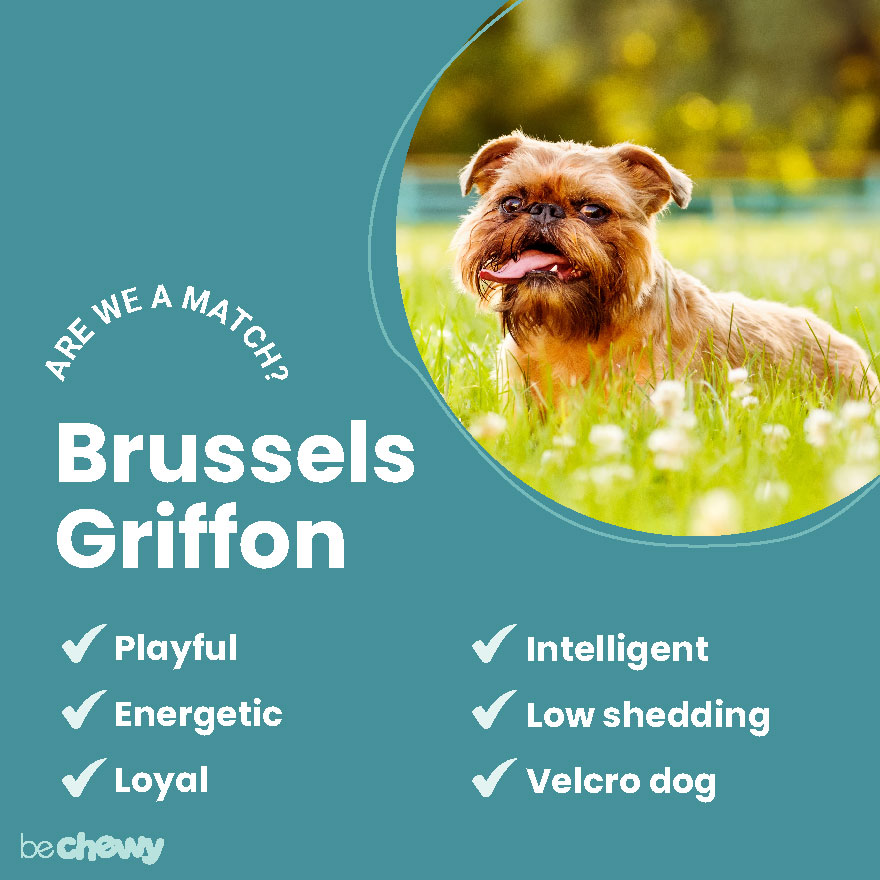
Top Takeaways
Looking for your soulful-eyed pet soulmate? The Brussels Griffon is a spirited and dedicated pup who will love being by your side at all times, whether you’re running errands or chilling around your home. Great for families with older kids, the Brussels Griffon, with outsized swagger that belies their size and star-power to spare, might just be the cutest member of your household.
Expert input provided by veterinarian Ted Vlahos, DVM, of Burnham Park Animal Hospital, and certified dog trainer Gayle Cosentino, CGC, CCGC, owner of It’s a ‘Paws’-Itive Thing dog training.
Breed characteristic ratings provided by veterinarian Dr. Sarah J. Wooten, DVM, CVJ, a veterinarian at Sheep Draw Veterinary Hospital in Greeley, Colorado; dog trainer and behavior consultant Irith Bloom, CPDT-KSA, CBCC-KA, CDBC, owner of The Sophisticated Dog, LLC, in Los Angeles; and certified animal behavior consultant Amy Shojai, CABC, in Sherman, Texas.
The health content was medically reviewed by Chewy vets.

Search for Adoptable Brussels Griffons Near You
Top Brussels Griffon Names
These are the top Brussels Griffon names as chosen by Chewy's pet parents!
Female Names
- Izzy
- Lucy
- Bella
- Stella
- Penny
- Gigi
- Poppy
- Maggie
- Roxie
- Daphne
Male Names
- Winston
- Louie
- Cooper
- Max
- Sprout
- Oscar
- Buster
- Bernie
- Bruce
- Thor
Share:
